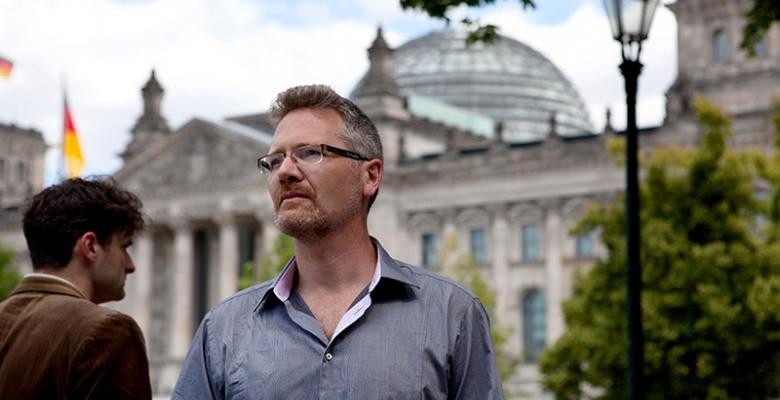5 Questions: History Professor Adam Tooze on Europe's Challenges From Migration to Debt

The migration crisis, the specter of terrorism, Russian President Vladimir Putin’s brinksmanship, pressures on the European Union and financial turmoil in Greece are among the threats that have reverberated around the world. British-born historian Adam Tooze, who joined Columbia last summer after a decade at Yale and, before that, Cambridge, brings expert insight to these current challenges.
The Kathryn and Shelby Cullom Davis Professor of History, Tooze specializes in the 20th century and contemporary history of Europe and the United States. His initial focus on German economic and social history has widened to include political, intellectual and military issues. His most recent book was The Deluge: The Great War and the Remaking of the Global Order, 1916-1931.
Q. What are some of the most pressing economic and political issues facing Europe right now?
A. It is worth distinguishing between long-term, structural problems and those that are immediate and acute. An immediate predicament is the refugee crisis that is literally on Europe’s doorsteps and its railway station platforms. Other pressing challenges have been problems of the eurozone, Greece, the threats and instability in the eastern Mediterranean, and the challenge of Russia and the Ukraine.
These crises are often connected. The problem of whether we can absorb Syrian refugees depends crucially on the level of unemployment in Europe which in turn is dependent on the state of the eurozone, so these problems are tangled knots that Europe will need to address.
Q. Could you discuss the current status of the Greek debt crisis?
A. It is clear that the overwhelming majority of Greeks, though they may hate austerity, would rather suffer in the eurozone than risk leaving it. It may be a difficult marriage, but these people are not even close to separation or divorce; they’re in it for the long haul and for very powerful reasons that are a messy combination of politics and economics and culture and history and expectations about the future. It is interesting to note that if you look at Greece, it is in the aggregate no worse off than it was in the 1990s.
Q. What are your thoughts about German Chancellor Angela Merkel’s handling of the Greek debt talks and the refugee crisis in Europe?
A. As a leader, she is an extremely competent manager of the coalition of groups within Germany, which range from the diehard, do-anything-it-takes-to-keep-it-all-together pro-Europeans to the Eurosceptic right-wing Germans, who regret losing the deutsche mark, think the gamble has not paid off and that Germans do not have control of Europe’s monetary policy. She has to manage that entire range of opinion while doing enough to keep Europe together and any extreme right-wing German nationalist party from emerging. She’s been hugely successful in containing that.
Q. What are you currently working on?
A. In my next book I will argue that the 2008 U.S. debt crisis is analogous to—not similar to—other great crises in the history of democratic capitalism in the past 100 years: the big moments of convulsion in the 1930s and 1970s.
The prevailing view is that in America, there were bad bankers and the private sector went wrong, and in Europe it is supposedly a story about bad politicians and democracies that overspend. In short, the view has been that Europe doesn’t have a fiscal union [common policy on taxes and spending] to go to with its monetary union [common currency], and America didn’t regulate its banks properly.
The European and American crises are not the same thing, but I describe the crisis as it happened on both sides of the Atlantic in the same time frame. I hope to show that the bailout organized by the Federal Reserve was as much a bailout of the European banking system as it was for its American counterparts. The book will come out in 2018, fittingly the 10th anniversary of the 2008 debt crisis.
Q. You’re the new director of Columbia’s European Institute, which was established shortly after World War II and trained specialists for the Marshall Plan. What are your plans for the Institute’s future?
A. The crises of the last few years—the refugees and the Ukraine—made it obvious that if Columbia did not already have a European Institute, it would have to invent one. It’s inescapable that a global university like Columbia simply has to have a center to examine these issues. Europe and America sit opposite each other, and we kind of made each other: first Europe made America, then Americans remade Europe.